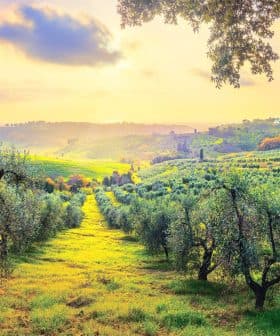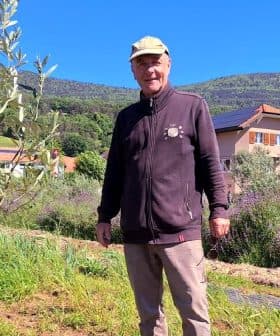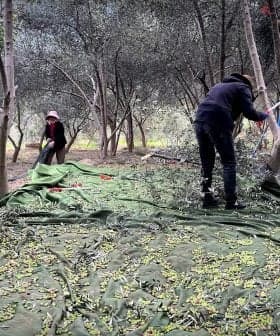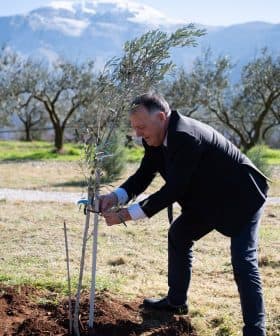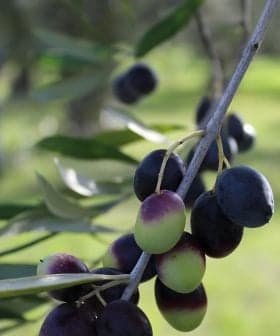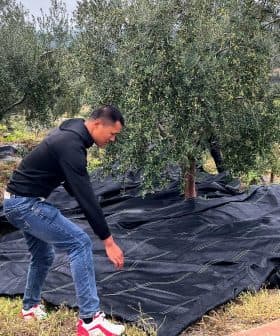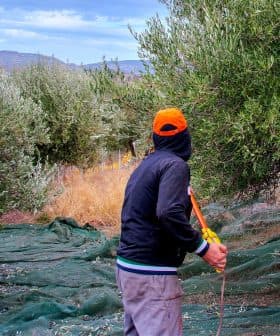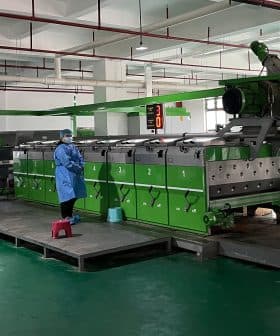Seeing Green: Harvesting a New Love for Extra Virgin Olive Oil in Tuscany
The author’s appreciation for olive oil grew after trying various oils at O & Co. in Manhattan’s Grand Central Terminal. They eventually volunteered at an organic olive oil farm in Tuscany, where they learned about the production process and enjoyed delicious meals made with the farm’s own olive oil.
I remember my first trip to Boston’s Regina Pizzeria at age nine. As I watched a few diners pour olive oil on top of their pizzas, I was perplexed. They wanted their pizza greasier? As a teenager I didn’t think much about olive oil, aside from the fact that if I cooked with too much of it, “BAM!” I’d look like Emeril Lagasse.
After college, my interest in food grew deeper and with it, my appreciation for olive oil blossomed. I’d been toying with the idea of volunteering through the organization Worldwide Opportunities on Organic Farms (WWOOF), for a couple of years when I wandered into an O & Co. in Manhattan’s Grand Central Terminal.
I walked in with the intention of sampling sweet, syrupy balsamic vinegars, but the salesman insisted I also try a few of his favorite oils. As I swooned over the fruity, grassy liquid gold, I learned that each year the salesman would visit one of their Italian producers for the olive harvest. Something clicked. I knew my destination! It took another year or so to drop everything to travel, but I finally made it out to Italy for the 2010 harvest.
After a month of picking wine grapes and chestnuts in northern Italy, I made my way down to Tuscany. My hosts Enrico and Luisiana, Milano natives, left the city smog for the hills of Riparbella, a village near the Ligurian coast of Pisa. For about twenty years, the couple has produced organic olive oil from some 1,200 olive trees surrounding their home and agritourism, Le Serre.

Each November, Enrico and Luisiana enlist a team of about seven WWOOF volunteers to help pick the olives when they’re in their prime. They get fourteen extra hands on deck, while the volunteers get an authentic Italian experience in the breathtaking countryside, a place to sleep in the agritourism and delicious, abundant meals. In fact, the meals were so delicious, so abundant, that I don’t imagine they are saving an enormous amount of money as WWOOF hosts. They’re largely in it for the same reason as the volunteers are: cultural and educational exchange.
Much of this education took place out in the field. As we alternated picking, collecting olives in crates and moving nets, we’d chat, joke, practice Italian and English and gape at the landscape. In between socializing, I’d find moments of pure serenity picking the hard-to-reach olives under a canopy of leaves. As I picked by hand and comb (and occasionally hand-held electric harvester), I’d ask Enrico and the other Italians working with us about the art, science, business and politics of organic farming and olive oil production. I learned about the importance of pressing the olives within 24 hours of picking, what “extra virgin” really means and about the unique characteristics of Tuscany’s countless olive cultivars. I discovered the glorious frantoio, both the olive and the building.

When Enrico let me tag along to the frantoio, or olive press, I witnessed the olives’ journey from whole, to paste, to bright, almost neon, green liquid. Feeling faint from the incomprehensibly rich smell of olive oil enveloping me, I followed Enrico outside the building. He pointed to the growing pile of olive pomace (the pits, stems and pulp that remain after pressing) out back. This, he explained, would be pressed once more for ordinary, “unrvirgin” olive oil. “That’s where people throw their cigarette butts,” he told me as we loaded up the truck with fresh barrels.
I had the honor of trying the vibrant new oil – and comparing it to last year’s oil – with each meal. Apart from the olive grove, the dining room played host to our cultural exchange, most of which revolved around food. I baked chocolate chunk banana bread with the other Bostonian; the Israeli couple made a Mediterranean feast, replete with homemade pita, couscous and apple cake; and the Swedish WWOOF volunteer, who just so happened to be a chef, made her own sendoff dinner of Swedish pancakes with berries and bacon. On most, days, however, the cuisine was pure Italy.

Most dishes came with suggestions on how to best enjoy them, and these suggestions almost always involved olive oil. A simple salad required no cream or corn syrup-laced dressings to satisfy, merely a bit of oil and perhaps a splash of balsamic and sprinkle of salt. More surprising to me, soup that was once delicious popped with brilliance after a drizzle of oil.
Whether just any extra virgin olive oil would produce the same magic on a bowl of soup is doubtful; after all my tasting and traveling was through, Le Serre’s oil always came out on top. What made their oil taste so incredible? Was it the mix of olive varieties? The careful pruning, the coastal Tuscan environment, the organic practices or cold pressing? I’d say all of the above, and the fact that those olives were harvested by some very happy hands.
Photos: Daniel Pintus
Worldwide Opportunities on Organic Farms
Le Serre Azienda Agricola Biologica — Agriturismo
56046 Riparbella (PI)
Tel/Fax: +39 0 586 699100


